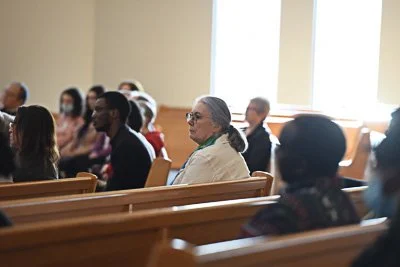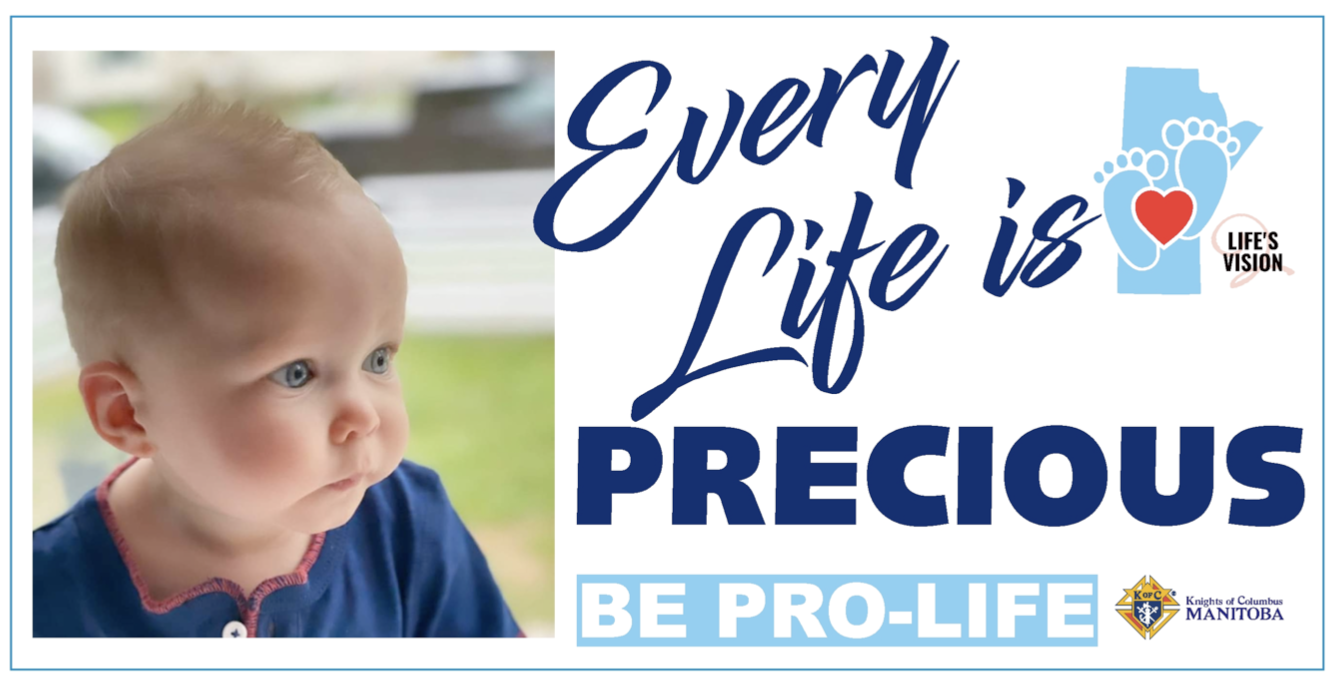In the wake its legalization, in June of 2016, medical assistance in dying is becoming more and more normalized. A situation that Katarina Lee, clinical ethicist at St. Boniface Hospital, finds particularly troubling.
On March 2nd, you will be giving a workshop on advance care planning and end-of-life issues. (1) You’ll also speak about the social and medical repercussions of medical assistance in dying (MAID), which are of great concern.
I’m deeply worried about MAID’s impact in all areas. In health care, in medical research, in what specifically triggers a request for MAID and how it’s assessed. I’m also troubled by the language surrounding MAID, which is creating a new mindset. There’s this concept that MAID “ends suffering”. People also talk about avoiding “being a burden” to others. This language needs to be questioned. Robustly.
Because MAID is now a legal option…
Yes. And if there’s no deep and honest reflection about MAID, the new language surrounding it will start to describe a default position. Take “MAID ends suffering”. Is that really true? For one thing, death doesn’t end suffering. There’s the pain and grief of those who have just lost a loved one.
Medically speaking, we don’t even know if someone who has died from MAID suffers or not. You’re given a paralytic and so you stop moving, but are you in pain? No one knows.
As for the patient who is in great pain and says, I can’t take this anymore. I can’t do this anymore, what exactly does that mean? Does he really want to end his life? Or is he asking for relief because he’s having a particularly bad day as a patient? We all have moments of discouragement. We all have bad days.
And yet we often recover…
Exactly. There’s a lot of medical and psychological literature on the value of resiliency. People who have suffered and bounced back often grow. They have much to contribute to society. There are benefits. And yet people don’t see any value in suffering. They view it as a negative thing to be eradicated. I’d argue that’s not a realistic position. Whether we’re healthy or ill.
Our culture certainly has the mindset that pain must be avoided…
In the face of an illness, or a debilitating disease, it’s natural to be scared. The trap, now that MAID is legal, is to believe it’s the ultimate option, the last and only resort. A person receives a discouraging diagnosis, and he quickly leaps to MAID. The MAID mindset says You’ve got Parkinson’s. It’s a terminal disease. You’re going to suffer, so why not just choose MAID? That’s what a woman in British Columbia decided. She was not near death, but she petitioned for MAID. Suffering was completely out of the picture. In the end, she won her case and was granted MAID in 2017.
More and more people want to be eligible for MAID…
That’s another worry. Bill C-14 was sufficiently vague that different provinces came up with different regulations surrounding it. Who qualifies for MAID? What is the waiting period for it? And because the law is vague, there’s been a push to extend its boundaries. More people are asking to qualify for MAID. Which contributes to the MAID mindset.
Surely treatments have improved, so why would one make the leap to MAID?
That’s one of medicine’s ironies. There’s increasingly better pain management. Better than ten years ago, and exceedingly better than at the turn of the century. One would think that fewer people would choose MAID.
From a medical standpoint, when people suffer, we continually figure out how to reduce that suffering. We figure out how to cure diseases or reduce symptoms. We introduce new treatments, deal with drug side effects, and build programs to keep people alive. We invest our energy and resources in healing and improving quality of care and life.
Palliative care has also greatly improved…
Absolutely. The sad truth is that we don’t fund that many beds for palliative care. Especially in the country. People in rural areas have much better access to MAID than palliative care. And if you’ve developed the MAID mindset, of course you may start to think I want to die peacefully. There aren’t resources here and I don’t want to drive out to the city to access them, because I don’t want to be a burden to my family.
Since Bill C-14 was passed in 2016, there hasn’t been much of a public debate on MAID…
That’s one of the more troublesome aspects of the current situation, because our culture is somewhat apathetic. Canadians often think that if an issue doesn’t affect them, they don’t feel a need to speak out. Take abortion. Canada has no actual law on abortion. There’s been a legal void since the Supreme Court declared in 1988 that Section 251 of the Criminal Code had no force or effect. And yet, Canadians simply act like there is a law. And many who think abortion is wrong won’t go out of their way to object to someone else having one.
Which is why it’s important for people of faith to state their beliefs. We Catholics need to talk about MAID, abortion and other life and death issues. Not just amongst ourselves, but with our friends who have a different view, and in the public square. We need to make known the solid reasons why we object to MAID. We need to push for more funding for palliative care and medical research. Above all, we need to share our fundamental vision: that we are called to preserve life from conception to natural death.
Katarina Lee is Manitoba born, and was raised just outside of Carman. A devout Catholic, she became interested in questions surrounding medical care at age 12, when her grandmother was hospitalised for 19 months. Those questions led her to study philosophy, law and bioethics. She is the clinical ethicist at St. Boniface Hospital and an assistant professor in Family Medicine at the University of Manitoba.
(1) The Marriage, Family and Life Service of the Archdiocese of Saint-Boniface is pleased to offer a Free Advance Care planning, End-of-Life Decisions & MAID workshop, Saturday, March 2, 2019, from 9:30 AM – 11:30 AM in the Saint Boniface Cathedral Hall. Presented by Katarina Lee, this workshop will provide education, benefits and pitfalls regarding advance care planning, including the use of advance care directives and health care proxies. Discussions from a Catholic perspective of medical decisions such as nutrition, hydration, resuscitation and ventilation will also be explored, as well as, palliative care and an overview of Medical Aid in Dying and the impact recent legislation has had on society and the practice of medicine. Space is limited, please register online at: bit.ly/careplanning1
For more information: mfl2@archsaintboniface.ca or 204-594-0295. To view the poster,
click here.























































































